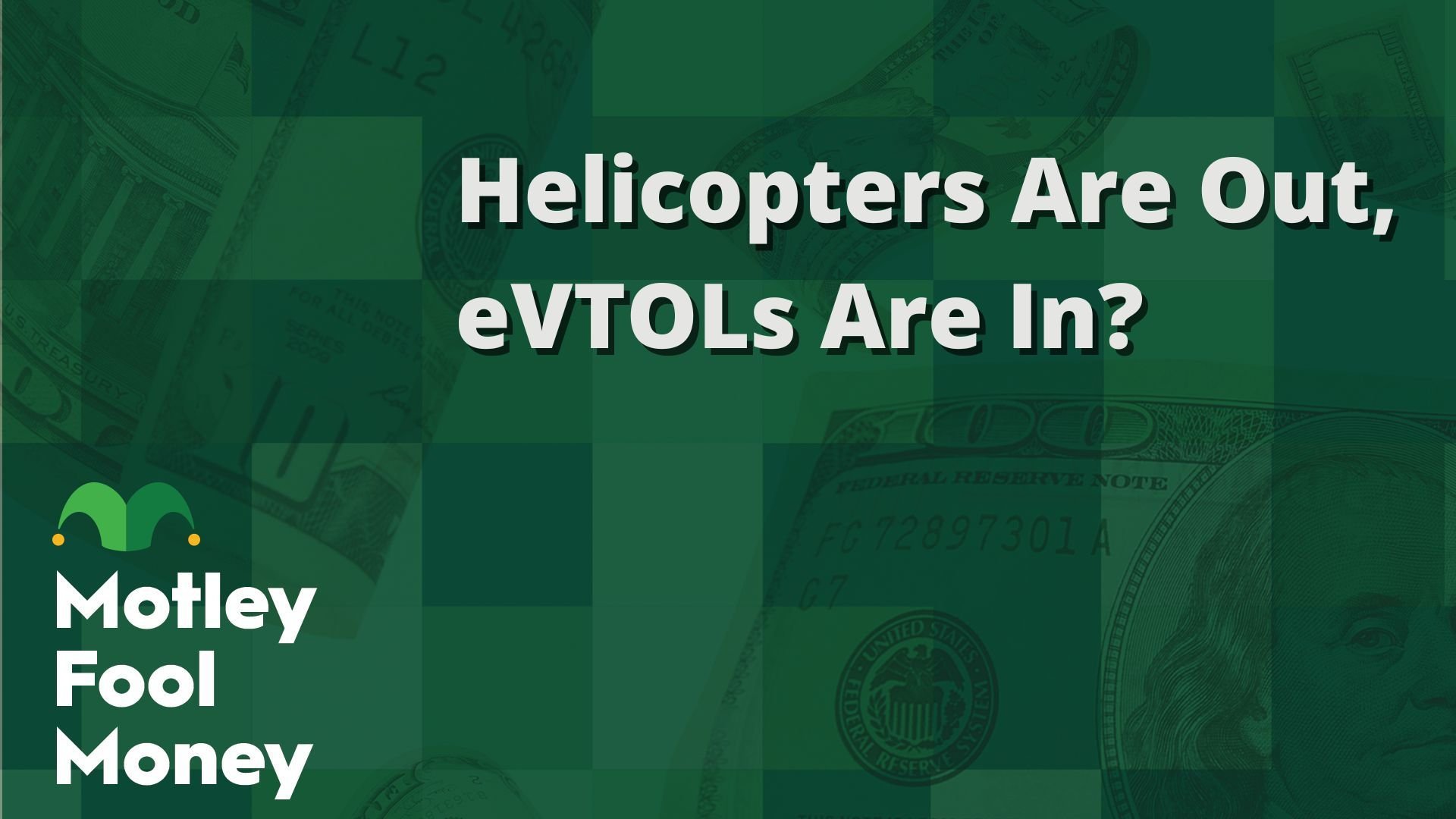When it comes to electric vehicles (EVs), names such as Tesla, Rivian, or Nio probably come to mind first. But did you know that EVs are making their way to the skies as well? While it might sound like something out of a science fiction novel, several companies are competing to develop small electric vertical takeoff and landing (eVTOL) aircraft.
One company leading that charge is Archer Aviation (ACHR 0.40%). It has made notable progress throughout 2023 as it works toward commercializing its air taxis, and the stock is a Cathie Wood favorite. But does Archer deserve a spot in your portfolio?
Did you say electric air taxi?
The idea of eVTOL taxis admittedly sounds a little far-fetched, at first. Yet the concept is so intriguing that I was compelled to dig further.
Archer Aviation's mission is to provide another option for travelers in congested urban environments -- fast trips above traffic-clogged roads in environmentally friendly air taxis. This sounds like it's trying to become the Uber or Lyft of airborne ride-hailing. However, the company's operations are a bit more complex.
Just last month, Archer was granted a Special Airworthiness Certificate for its flagship Midnight eVTOL aircraft from the Federal Aviation Administration. This is a big deal: It permits Archer to begin flight tests that can earn the company credit as it moves toward mass commercialization.
In addition, Archer recently hosted personnel from the U.S. Marine Corps to show off the capabilities of its eVTOLs. The military has shown interest in the company's aircraft, and the company points out that as its aircraft are quieter and safer than traditional helicopters, they could potentially replace them for rescue missions and other military operations.

Image Source: Getty Images
A long, expensive road
Between the raw materials that go into EV batteries, the labor-intensive work environments, and the hefty research and development costs, bringing any new electric vehicle to market an expensive task. To put that into perspective, Archer raised a total of $1.1 billion since it was founded in 2018.
Most recently, it raised $215 million from investors including Stellantis, Boeing, United Airlines, and Wood's Ark Invest. While the amount of funding it requires to move toward commercial operations is quite high, one silver lining could be the consistent support that Archer's investors provided. The latest capital raise was United Airline's third time investing in Archer, while Stellantis committed to buy further equity under a strategic agreement that was signed in January.
Should you buy the stock?
Given the amount of capital that has already been poured into Archer, as well as the company's recent airworthiness certification success, there should be one particular aspect of the operation that investors should be wondering about. As of now, Archer is not generating revenue. This would usually be enough of a concern that I would drop the stock from consideration. But given how much progress the company has made this year, it's hard to walk away so easily.

NYSE: ACHR
Key Data Points
Per the company's filings, it expects to reach commercial operations by 2025. While that's only a little more than a year away, Archer has a lot of incentives to stay on schedule for that goal. For example, earlier this year, Archer signed a deal with the U.S. Air Force for a contract valued at up to $142 million. Additionally, per a 2021 agreement, United Airlines has a purchase order for up to 300 of Archer's aircraft. The total deal value of that contract could be up to $1.5 billion. The sooner the company reaches commercialization, the sooner it can ratchet up manufacturing, begin fulfilling orders, and start raking in revenue.
Archer reminds me a lot of Rivian. When Rivian went public in 2021, it was effectively pre-revenue. Yet over the last two years, the company generated billions in sales. Despite Rivian's impressive entrance into EV cars, the company has a long road ahead before it turns profitable. For Archer, my hunch is that the company may experience a similar trajectory such that its sales profile could reach seven figures quickly.
Should this be the case, the stock could make some dramatic moves as momentum enters. While this may present some initial feelings of euphoria, some investors may be left holding the bag if momentum traders sell off or the company do a secondary offering. For these reasons astute investors should be sure to keep an eye on the company's cash flow once the business is commercialized and understand that an investment in Archer should be considered a long-term play, similar to that of venture capital (VC).
Venture capitalists generally have higher appetites for risk than traditional investors. For this reason, VC funds support start-ups during their early days of operation. Should a VC fund-supported company grow and become an industry leader, the venture capitalists behind it can make healthy returns on their investments. But many of these investments also flop. These are very much high-risk, high-potential-reward types of investments.
There's actually a lot to like when it comes to Archer. The company has top-notch strategic support from industry leaders, and the government appears quite interested in its offerings as well. The primary risks revolve around whether the company will be able to meet its commercialization timetable, and the liquidity constraints it may face if everything doesn't go according to plan.
Given the consistent support it has gotten from the likes of Stellantis and United Airlines, as well as the visibility investors have into its expected future revenues based on its already-inked purchase deals, I think a small position in Archer could be a decent hedge to other EV plays you may have in your portfolio. It is, of course, vital for investors to be clear about the risks of buying shares of a pre-revenue start-up like Archer. My advice would be to monitor the company's press releases and earnings reports to ensure it is moving steadily toward commercialization, and to see what additional interest it attracts from airlines or the government.





